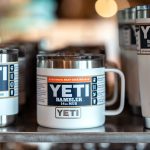Connected fitness company Hydrow, which Peloton once tried to buy, is growing sales and has acquired a majority stake in strength training company Speede Fitness as gymgoers move away from cardio exercises in favor of weights, the company told CNBC on Thursday.
Hydrow also announced that its CEO and founder Bruce Smith will step back from day-to-day operations and hand the reins over to President and Chief Financial Officer John Stellato. Smith will take over as the chair of Hydrow’s board.
The company, most known for its pricey connected rowing machines that cost between $1,700 and $4,000, is backed by private equity bigwigs such as Constitution Capital and L Catterton. It counts several professional athletes and celebrities among its investors, including Kansas City Chiefs tight end Travis Kelce and singer Justin Timberlake.
Hydrow has raised more than $300 million in funding. It said it acquired Speede Fitness so it can expand into strength training, one of the fastest-growing segments in fitness today.
The acquisition comes as gymgoers pull back on cardio exercises such as running and biking in favor of weight training.
Planet Fitness said in November that it would replace its cardio equipment more slowly, in part to free up capital.
“Our members are consistently seeking more strength and less cardio,” said Planet Fitness CFO Thomas Fitzgerald on the company’s third-quarter earnings call, adding that strength equipment costs less than cardio equipment.
Life Time fitness highlighted a similar trend in its annual fitness survey. More than one-third of respondents said “building muscle” is their No. 1 goal for 2024, an increase of more than 3% from the prior year.
Speede Fitness makes a connected strength training machine that looks somewhat similar to a BowFlex, but incorporates advanced technology such as artificial intelligence-powered cameras, sensors and a large touch screen.
“Strength training has one of the largest total addressable markets in fitness, and with Speede’s advanced technology outperforming current offerings, this acquisition is a significant milestone for both companies,” Hydrow said. “This investment supports Hydrow’s mission to expand as a whole-body health company … with a consumer product expected to come to market next year.”
Hydrow’s acquisition and sales growth come as Peloton, which is credited with creating the connected fitness market, struggles to turn around a slowing business. In its heyday at the height of the Covid-19 pandemic, Peloton tried to acquire Hydrow rather than build its own rowing machine, but the company declined, it told CNBC. Peloton did not respond to CNBC’s request for comment.
Now, Peloton has become an acquisition target itself as numerous private equity firms consider taking it private after it posted another quarter of declining sales and losses, CNBC reported on Tuesday.
Peloton has said demand for its fitness equipment has been sluggish as consumers pull back on big-ticket items. Still, Hydrow has managed to grow as Peloton has shrunk.
Hydrow’s delivered unit sales for its connected rowing machine jumped 23% this year from the year-ago period. On Amazon, sales increased 273% in the 12 months that ended March 31 compared to the prior-year period.
Hydrow’s growth raises questions about whether Peloton’s problems are more related to weakness in the broader at-home fitness market or its internal stumbles and product misses. Plus, the company primarily sells cardio machines, which are falling out of favor with consumers, and its own members are flocking to strength training. The company has said its strength training content, not its cycling or running classes, is the most popular type of class for digital members and the No. 2 among those who have Peloton hardware.
Peloton debuted its rowing machine, the Peloton Row, in September 2022, but has done little to advertise or highlight the $3,000 machine.
It previously debuted the Peloton Guide, an AI-powered device for at-home guided strength training, but the device has received even less attention than the company’s rowing machine.
In Peloton’s fiscal third-quarter shareholder letter, the Guide received one mention. It was about a $9.1 million write-down the company took for its product inventory.
Read the full article here




